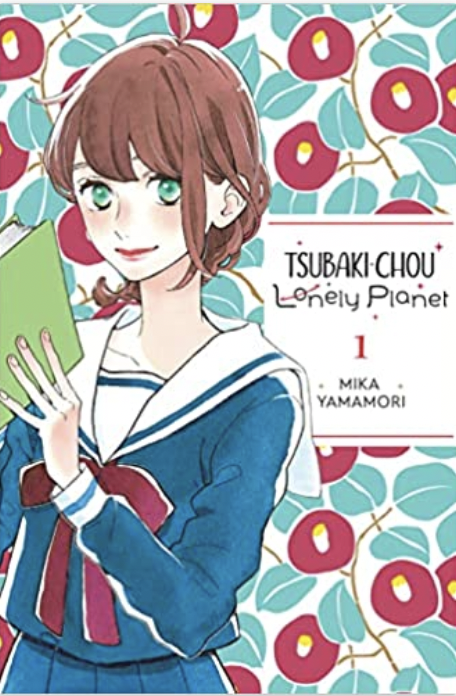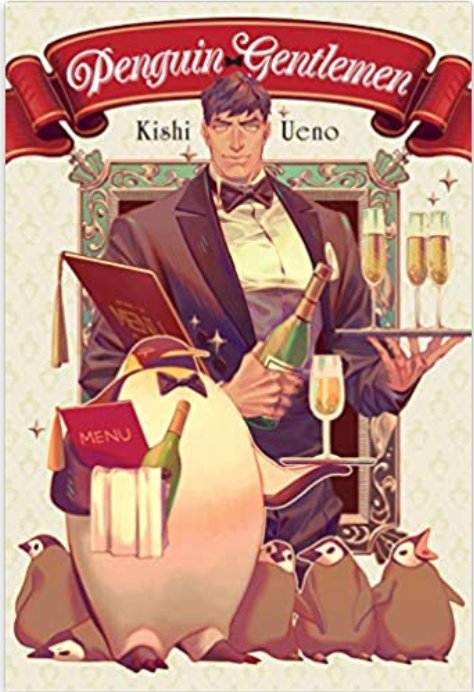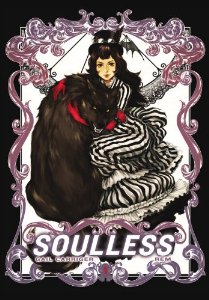Tsubaki Chou Lonely Planet Volumes 1 and 2 by Mika Yamamori
I enjoyed Yamamori’s Daytime Shooting Star, even though I spent many volumes deeply concerned about the resolution of the age-gap romance in the manga. I can experience those feelings all over again, as the heroine in Tsubaki-chou Lonely Planet seems to be headed in that direction as well. Will the charming character designs and humor in this title cause me to tamp down my uneasy feelings about power dynamics in shoujo manga? Quite possibly!
Parents in manga have a lot to answer for, what with their habits of abruptly marrying people who come burdened with incredibly cute and charismatic new step-siblings, or their tendency of suddenly abandoning their children for endless overseas trips, or manifesting total financial instability that causes their high-school age children to get a job to fend off terrible loan sharks.
In the first few panels of Tsubaki-chou Lonely Planet thrifty and responsible Fumi Ohno learns that her father is shipping off to sea to become a fisherman in order to pay off the aforementioned loan sharks. She’s being kicked out of her apartment, right when she was on the verge of being able to buy a new vacuum with the money she’s been saving from stretching the household grocery budget! She concludes that her only option is to become a live-in housekeeper to an author. Dazzled by the thought of free room and board, Fumi shows up at her new workplace only to discover that instead of the bespectacled old man with a mustache she’s imagining, her new boss is a floppy-haired young man who seems to be in the habit of passing out in his front hallway. Akatsuki Kibikino writes historical novels and lives in an incredibly untidy house. He’s not happy that a young girl showed up to clean and make his meals (he thought only grandmas were named Fumi) but after hearing that she’s totally alone in the world, he decides that maybe having a clean house and homemade meals would be a good idea after all. Akatsuki informs her that if she’s his housekeeper, it is also his duty to protect her, and he follows up on this promise.
A new transfer student shows up at Fumi’s school and makes a point of singling her out. However Isshin Imamura is harboring a decade-long grudge because Fumi beat him in a race in elementary school. Fumi begins struggling with her feelings towards her employer, and they become a bit closer just with their daily interactions. They have fateful encounters like going grocery shopping for rice. Fumi tends to be a bit naive about the world, throwing herself into some potentially unsavory situations when she hears that her father is having money troubles again, but Akatsuki has a tendency to show up just in time to rescue her. Isshin also becomes more sympathetic and has some blunt assessments about Fumi’s emotions that cause her to reflect on her feelings.
There’s plenty of humor in this series, mainly due to Fumi’s genuine skill and enthusiasm for homemaking pursuits like cooking, maintaining a coupon book, and being willing to battle it out at grocery stores for discounted vegetables. Akatsuki is grumpy and doesn’t take care of himself at all, but when he senses that something’s amiss he springs into action to help Fumi, even if it might take him a little while to realize what’s happening. Yamamori’s art is engaging, highlighting the occasional moments of emotional revelation that occur as the characters get to know each other better. After reading the first couple volumes, I’m invested in seeing how Fumi is going to make her way in the world, and I hope for the best for her. Fans of Daytime Shooting Star will find plenty to like about Tsubaki-chou Lonely Planet




